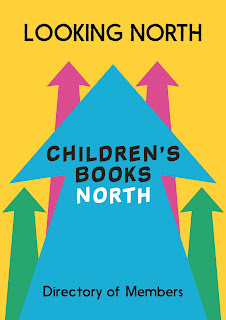Guest Northern Highlights - Wigtown Book Festival
Guest Northern Highlights
Wigtown Book Festival
Can you start by telling us about the origins of the Book Festival in Wigtown?
In the mid-1990s, it was suggested that a ‘book town’ on the model of Hay-on-Wye would be a good way to help regenerate a community in Scotland. Six small towns with varying economic needs submitted bids. Half were from Dumfries & Galloway – Gatehouse of Fleet, Moffat and Wigtown. The others were Dalmellington, Dunblane and Strathaven. An international panel chose Wigtown. At the time, the former county town of Wigtownshire was at its lowest ebb. There were many empty and run-down properties, and the almost derelict County Buildings on the town square were threatened with demolition. Wigtown then had one of the highest levels of unemployment in Scotland, but the town boasted a beautiful setting and a rich history. In 1999 the Scottish Government acknowledged Wigtown as Scotland’s National Book Town, and in the same year, the first Wigtown Book Festival took place. From a humble three-day annual festival in 1999, Wigtown Book Festival has grown into Scotland's second largest Book Festival spanning 10 days each autumn showcasing over 250 events and activities for all ages including music, theatre, food and visual art. In 2019 the festival was worth £4.2 million to the local economy.
This year's festival takes place 23 September - 2 October.
How important is it that the Festival is embedded in the Wigtown community?
Very important! The festival grew out of the community and we work to honour that through showcasing local talent in the festival programme to celebrating Wigtown's wonderful bookshops. More than 100 volunteers generously give their time to the event, delivering brochures, working in the box office, decorating venues, driving authors and helping in a thousand other ways. It's one of the reasons why the festival has won the Arts & Business (Scotland) Community Award, a ScottishPower Foundation Award for Community Engagement and why Wigtown was declared Scotland's most creative small town in 2012.
You have lots of projects running throughout the year - can you tell us about a few of them?
In 2007 Wigtown Book Festival became a registered charity and Wigtown Festival Company was born. The Festival Company produces and delivers a vast amount of creative work outside of the annual Wigtown Book Festival for people of all ages and includes #WigtownWednesdays, young reader and writer groups, writer development programmes and mentoring schemes.
My favourite year round project is Big DoG, our annual Children's Book Festival in Dumfries named in honour of Nana, the big dog who looks after the Darling children in Peter Pan. Big DoG offers low cost and free tickets, welcoming children and families from across Dumfries and Galloway to meet some of the biggest stars in kids lit. Recent attendees include Benjamin Zephaniah, Nick Sharratt, Vivian French and Aardman Animations. For many children attending Big DoG, it is their first time engaging with a literary or creative event.
What is your favourite children's book set in Scotland?
Technically YA but Melinda Salisbury's Hold Back the Tide is a definite contender... beautifully atmospheric! For MG readers Elle McNicoll's debut A Kind of Spark is a wonderful introduction to Neurodiverse characters, and for slightly younger children Michael Morpurgo's The Silver Swan will always be a classic.
What do you hope to see for publishing and the creative industries in the North in the coming years?
This is a huge question and it goes further than geographical location - it's an exciting time to work in the creative industries but socioeconomic status, arts provision and deprivation are all still barriers to accessing jobs and particularly fair-paid work in the sector. We work in an industry that is traditionally London-centric but change is coming - only last year Hachette opened five new offices in the north of England and Scotland which saw almost 60 London-based employees relocate to Manchester, Bristol, Newcastle, Edinburgh and Sheffield. This move makes publishing roles both aspirational and attainable for children and young people living in the north and I hope that it will act as a lever for further investment and activity in literature outside of the capital. The Covid lockdowns in 2020/21 have shown that home and hybrid working does work for many employees - if this flexibility remains post-Covid, more young people, especially those with mobility issues or ill health, will be able to realise careers in the industry. In the coming years, I hope to see greater awareness of how large our industry is, the varying roles within it and the many pathways to entry amongst young people of all backgrounds.
What are some of the ways authors and illustrators can work with you?
We're always on the lookout for new voices and fresh talent, say hello at mail@wigtownbookfestival.
Twitter: @WigtownBookFest





Comments
Post a Comment